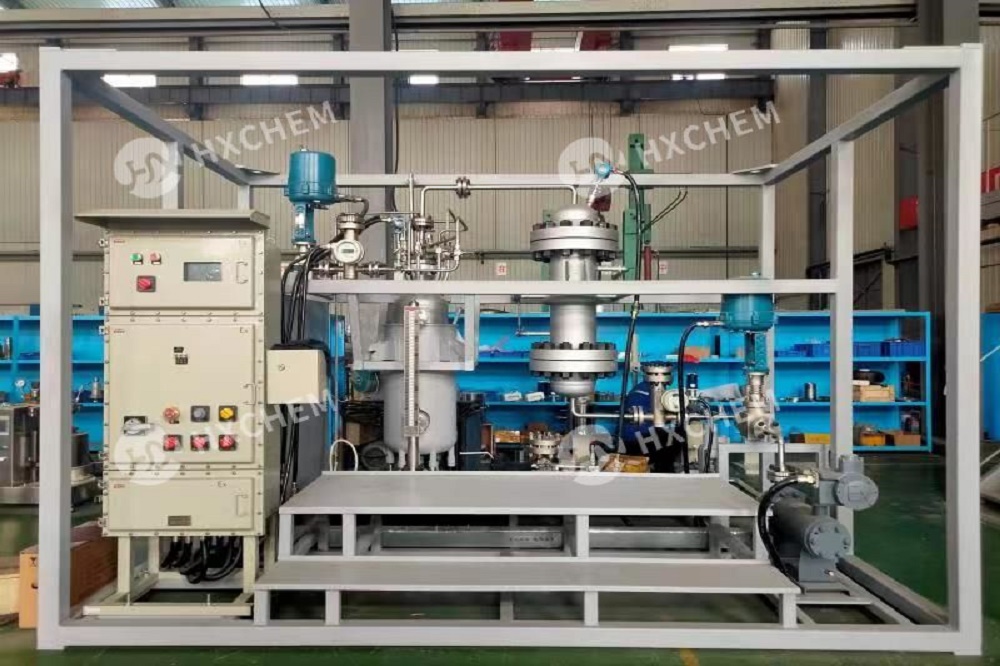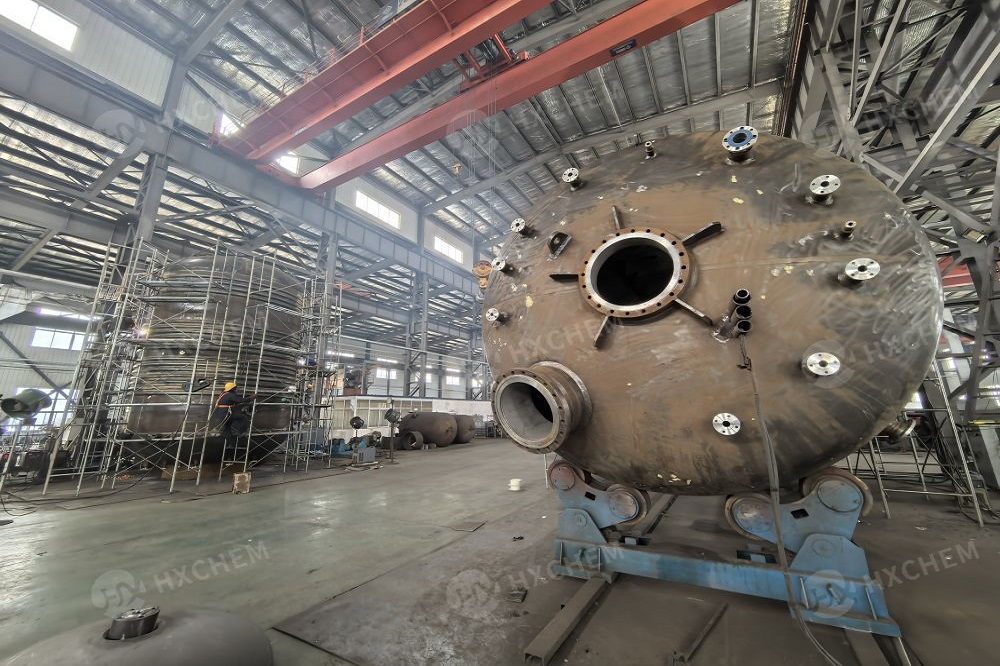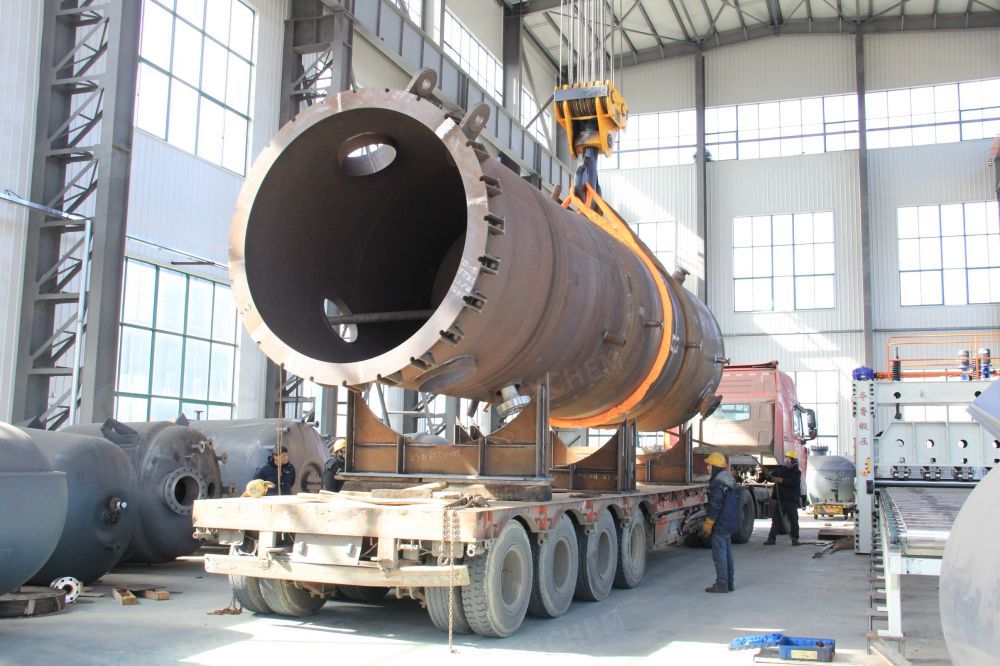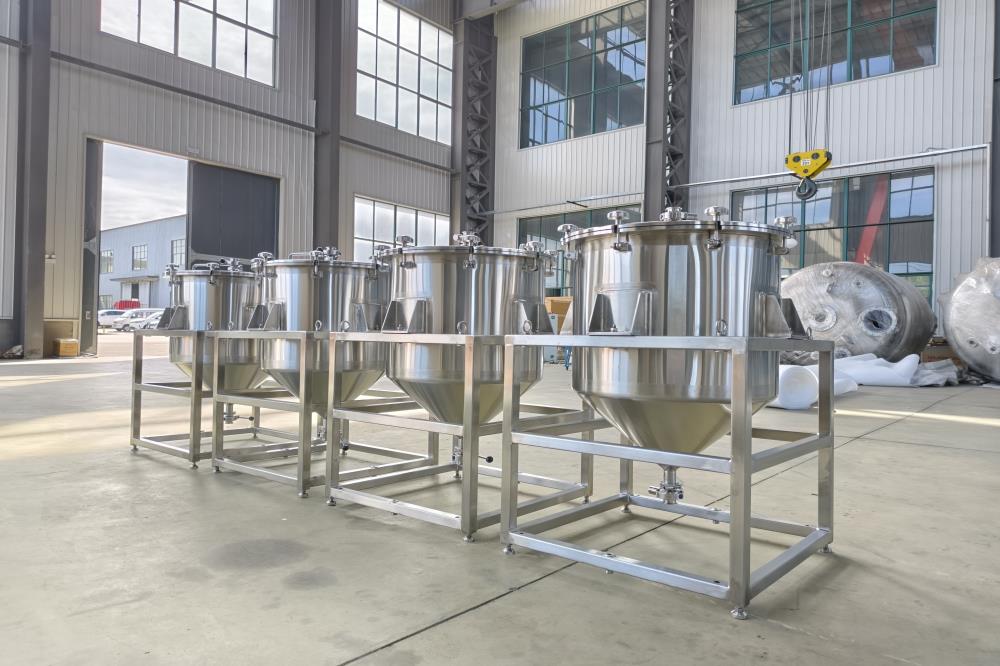Lab pressure reactor customization
2025-02-27
LAB PRESSURE REACTOR CUSTOMIZATION
Customizing a lab pressure reactor involves tailoring the design, materials, and features to meet specific experimental or production requirements. Pressure reactors are used for high-pressure and high-temperature reactions, such as hydrogenation, polymerization, and catalytic processes. Customization ensures the reactor is optimized for safety, efficiency, and performance. Below are key considerations and steps for customizing a lab pressure reactor:
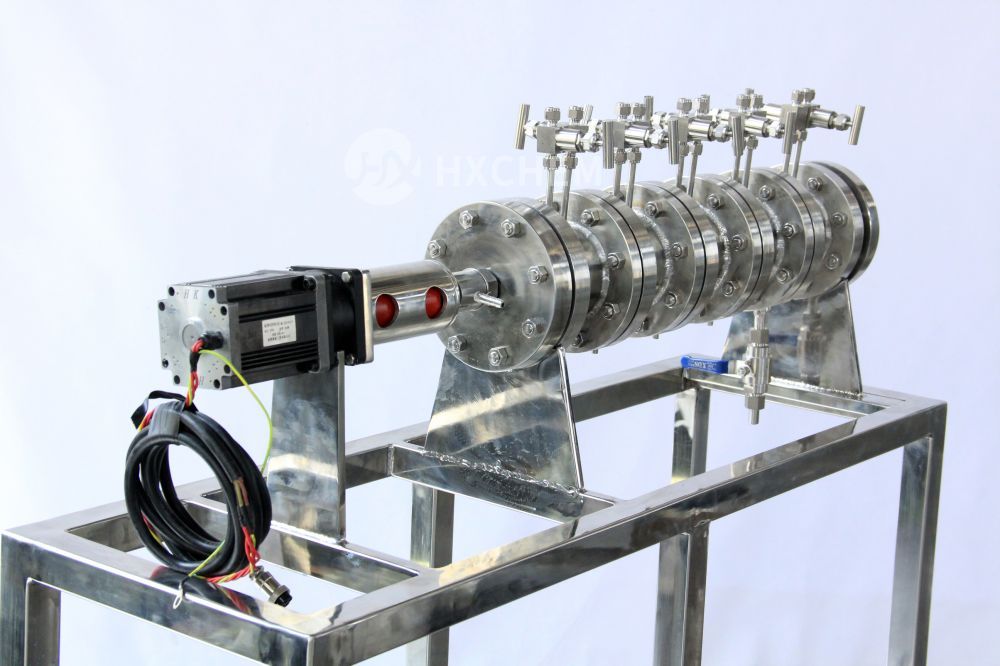
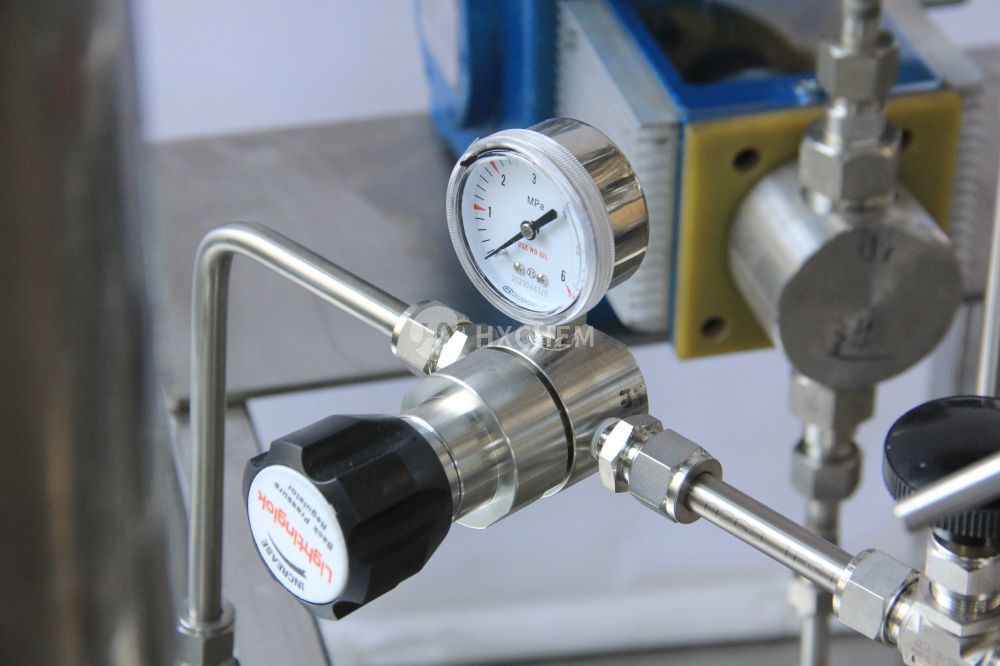
1. Define Your Requirements
Reaction Type: Identify the type of reaction (e.g., hydrogenation, oxidation, polymerization).
Pressure and Temperature Range: Determine the maximum pressure and temperature needed.
Volume Capacity: Choose the reactor size based on the scale of your experiments (e.g., 100 mL, 1 L, 5 L).
Compatibility: Ensure the reactor is compatible with the chemicals, solvents, and catalysts used.
2. Material Selection
Stainless Steel (SS316/SS304): Common for most applications due to its corrosion resistance and durability.
Hastelloy or Inconel: For highly corrosive environments or extreme conditions.
Glass-Lined Reactors: For reactions requiring visibility or resistance to certain chemicals.
Teflon or PTFE Linings: For acidic or alkaline reactions.
3. Design Features
Pressure Rating: Customize the reactor to handle specific pressure ranges (e.g., 100 psi, 1000 psi, or higher).
Temperature Control: Include heating/cooling options like:
Jacketed systems for external heating/cooling.
Internal coils for direct temperature control.
Agitation System:
Magnetic stirrers for small-scale reactors.
Mechanical stirrers with adjustable speed for larger reactors.
Ports and Connections:
Multiple ports for adding reagents, sampling, or attaching sensors.
Gas inlet/outlet valves for reactions involving gases (e.g., hydrogen, nitrogen).
Safety Features:
Pressure relief valves.
Rupture disks for overpressure protection.
Temperature and pressure sensors with alarms.
4. Instrumentation and Automation
Sensors: Include pressure transducers, thermocouples, and pH probes for real-time monitoring.
Control Systems: Integrate programmable logic controllers (PLCs) or software for automated control of temperature, pressure, and stirring.
Data Logging: Add data acquisition systems to record and analyze reaction parameters.
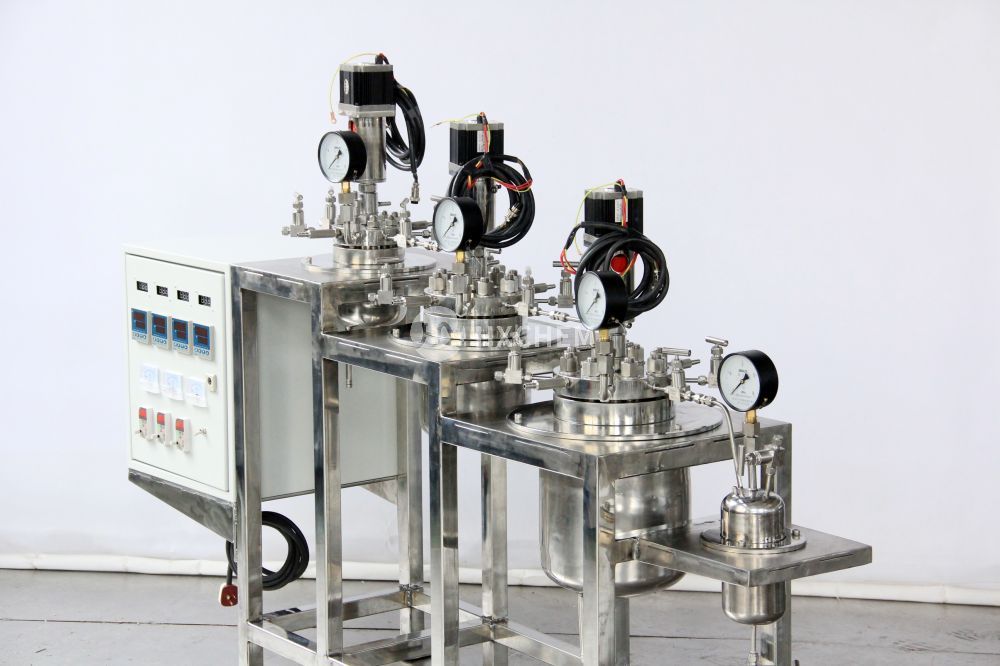
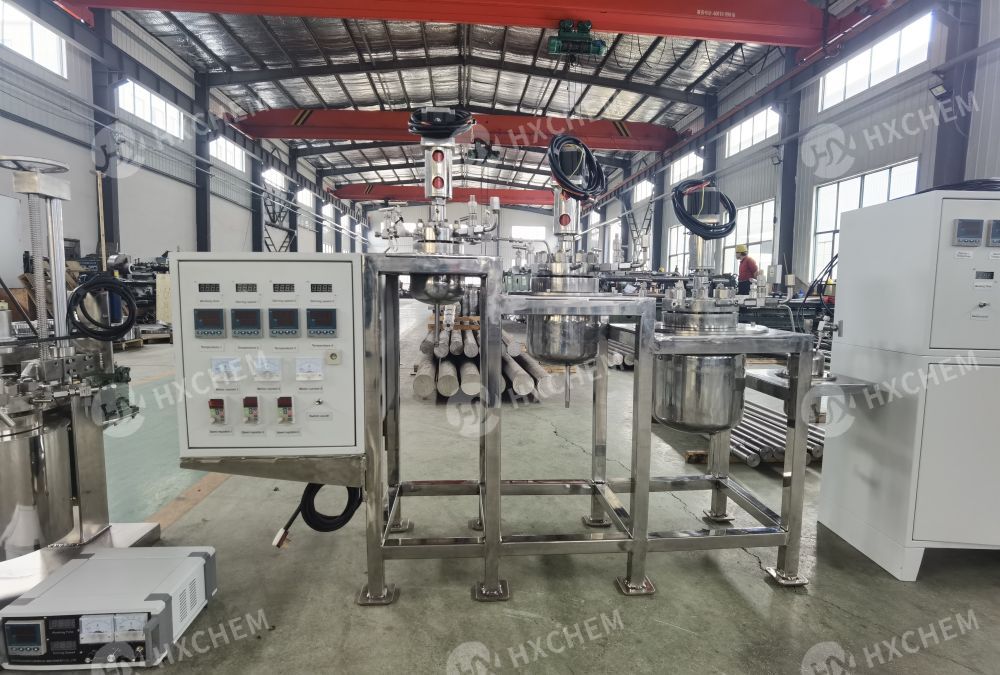
5. Additional Customization Options
Scale-Up Features: Design the reactor to allow easy scaling from lab to pilot or production scale.
Modular Design: Include interchangeable parts for flexibility in different experiments.
Specialized Coatings: Apply anti-corrosion or non-stick coatings for specific reactions.
Transparent Windows: Add sight glasses or quartz windows for visual monitoring.
6. Safety Considerations
Ensure the reactor meets industry standards (e.g., ASME, PED).
Include fail-safe mechanisms for pressure and temperature control.
Provide training for operators on safe handling and emergency procedures.
7. Work with a Manufacturer
Collaborate with a reputable manufacturer or supplier specializing in lab pressure reactors.
Provide detailed specifications and discuss your application needs.
Request a prototype or simulation if necessary.
Example Customization Scenario
Application: Hydrogenation of organic compounds at 200°C and 500 psi.
Customization:
Material: Hastelloy C-276 for corrosion resistance.
Volume: 2 L capacity.
Features: Jacketed heating, magnetic stirring, gas inlet for hydrogen, pressure relief valve, and data logging.
Safety: Rupture disk and automated pressure control.
By customizing a lab pressure reactor, you can achieve precise control over reaction conditions, improve efficiency, and ensure safety. Always consult with experts to design a reactor that meets your specific needs.

